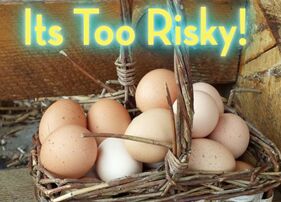个人理财,一定要保持多样化
|
Diversify, Especially If You Don't Know What You Are Doing! In the words of famed e conomist John Maynard Keynes, diversification is insurance against ignorance. He believed that risk could actually be reduced by holding fewer investments and getting to know them extraordinarily well.
Of course, the man was one of the most brilliant financial minds of the past century so this philosophy isn't sound policy for most investors, especially if they can't analyze financial statements or don't know the difference between the Dow Jones Industrial Average and a Dodo. These days, widespread diversification can be had at a fraction of the cost of what was possible even a few decades ago. With index funds, mutual funds, and dividend reinvestment programs, the frictional expenses of owning shares in hundreds of different companies have largely been eliminated or, at the very least, substantially reduced. This can help protect you against permanent loss by spreading your assets out over enough companies that if one or even a few of them go belly-up, you won't be harmed. In fact, due to a phenomenon is known as the mathematics of diversification, it will probably result in higher overall compounding returns on a risk-adjusted basis. One thing you want to watch for is correlation. Specifically, you want to look for uncorrelated risks so that your holdings are constantly offsetting each other to even out economic and business cycles. When I first wrote the predecessor to this piece almost fifteen years ago, I warned that it wasn't enough to own thirty different stocks if half of them consisted of Bank of America, JP Morgan Chase, Wells Fargo, U.S. Bank, Fifth Third Bancorp, et cetera, because you may have owned a lot of shares in several different companies but you were not diversified; that a "systematic shock such as massive real estate loan failure could send shockwaves through the banking system, effectively hurting all of your positions", which is precisely what happened during the 2007-2009 collapse. Of course, the stronger firms such as U.S. Bancorp and Wells Fargo and Company did just fine despite a period when they had declined 80% on paper peak-to-trough, especially if you reinvested your dividends and were dollar cost averaging into them; a reminder that it's often better to focus on strength first and foremost. Behavioral economics, on the other hand, has proven most people are emotionally incapable of focusing on the underlying business, instead of panicking and liquidating at the least opportune moment. But beside all these, just remember: Stick to Stocks Within Your "Circle of Competence" In investing, as in life, success is just as much about avoiding mistakes as it is about making intelligent decisions. If you are a scientist who works at Pfizer, you are going to have a very strong competitive advantage in determining the relative attractiveness of pharmaceutical stocks compared to someone who works in the oil sector. Likewise, a person in the oil sector is going to probably have a much bigger advantage over you in understanding the oil majors than you are. Peter Lynch was a big proponent of the "invest in what you know" philosophy. In fact, many of his most successful investments were a result of following his wife and teenage kids around the shopping mall or driving through town eating Dunkin' Doughnuts. There is a legendary story in old-school value investing circles about a man who became such an expert in American water companies that he literally knew the profit in a tub full of bathwater or the average toilet flush, building a fortune by trading a specific stock. One caveat: You must be honest with yourself. Just because you worked the counter at Chicken Mary's as a teenager doesn't mean you are automatically going to have an advantage when analyzing a poultry company like Tyson Chicken. A good test is to ask yourself if you know enough about a given industry to take over a business in that field and be successful. If the answer is "yes", you may have found your niche. If not, keep studying. |









